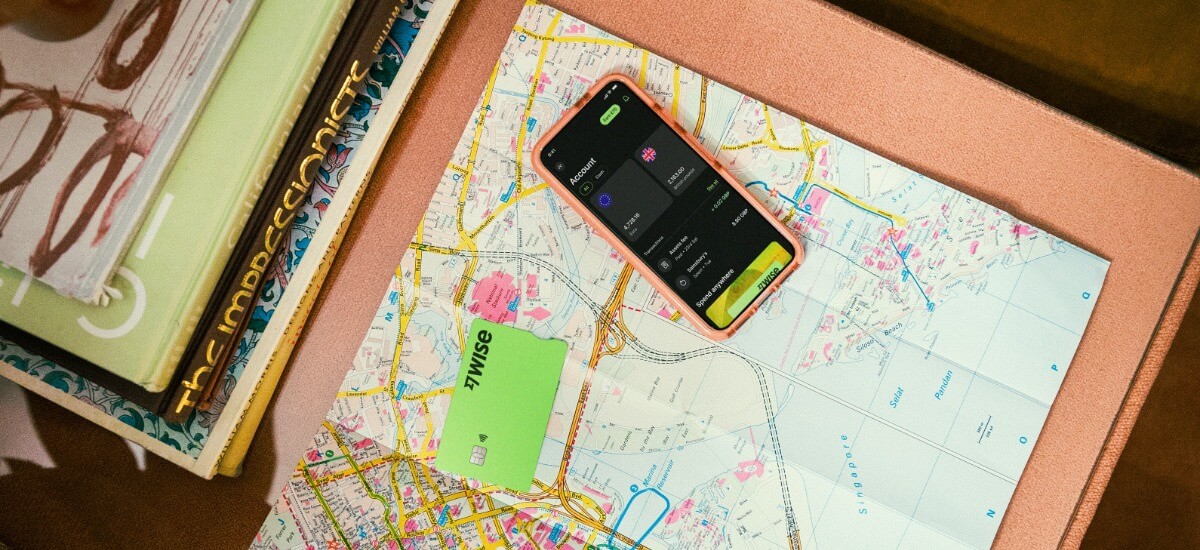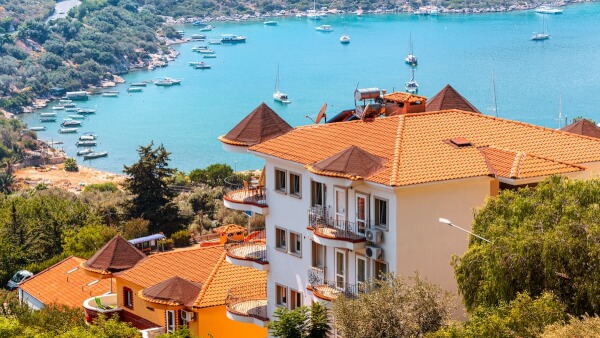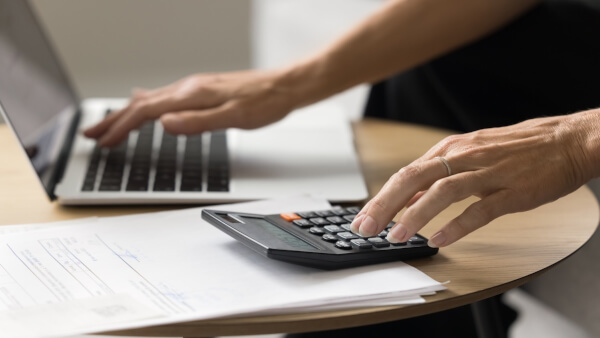How to get mortgage for overseas property as an American
Learn all about different ways to get an overseas property mortgage as an American and gain unique insights to prepare yourself for the whole process.

Property in France is a hot choice for those looking to get a more permanent taste of the French lifestyle, and it's not just the wine and weather that make it attractive. The French real estate market is stable and welcomes foreign buyers with open arms.
However, if you're thinking of buying a property in France, then finding a mortgage is probably high on your to-do list. It's possible to get financing from a French bank as an American, but you'll likely have to pay a high down payment.
Here's everything you need to know about getting a mortgage in France.
We'll also introduce Wise — your international money transfer alternative. Use Wise to send stress-free transfers to over 140 countries - all at the standard mid-market exchange rate.
Yes, getting a mortgage in France as a foreigner is possible. French banks regularly lend to non-residents, including US citizens. Your nationality won't disqualify you from borrowing, nor will living outside France.
However, most lenders will expect a deposit of at least 30% of the property value, which is likely higher than what you'd see in the US.¹
That said, this can vary based on your financial profile and the specific lender. Some lenders may require an even higher deposit, and some may accept a lower one.
France doesn't have any specific legal barriers preventing non-residents from obtaining mortgages. You will likely face a few practical requirements, though.
First, you'll typically need to provide a larger down payment than French buyers. You'll often need to cover at least 30% and sometimes 50% of the purchase price up front.¹
Banks will also scrutinize your financial situation more carefully than they would for local borrowers. They'll look at your credit history, current income, and existing assets. Some lenders impose certain debt-to-income ratios or age limits.
If you're moving to France or already have residency there, you may qualify for better terms.
Similar to the US, there are a few different types of French mortgages for foreigners who want to buy property in France:¹
Fixed-rate mortgages: You'll pay the same interest rate throughout the entire loan term, typically 6 to 25 years (though 20 years is most common)
Flexible mortgages: You can adjust your monthly payments within limits set by your lender, sometimes pausing payments for up to 2 years or increasing them by 30% to pay off faster
Variable-rate mortgages: These mortgages fluctuate based on European market rates, typically the Euribor rate plus 1% to 2%
Mixed mortgages: You'll start with a fixed rate for 2 to 5 years, then switch to variable rates
Interest-only mortgages: You'll be able to pay just the interest for an initial period, which will keep your monthly payments lower, but this option often requires property values of 1 million EUR or more
Capped-rate mortgages: These mortgages are variable-rate loans with maximum interest rate limits
Bridge loans: These short-term loans (extendable up to 2 years) help buyers purchase new property before selling existing homes
Generally speaking, French mortgage rates are quite low, especially when you compare them to the interest rates in the US. As of early 2025, average rates hover around 3.32% for new loans.²
Most of the time, you'll make monthly payments covering both principal and interest. Early repayment is allowed but may trigger penalties, typically up to 3% of the remaining balance or 6 months of interest payments.¹
Due to the fact that some banks offer discounted rates to mortgage agents who bring large amounts of business to them, using a broker is a popular option. A broker can sometimes secure better deals than you'd get by approaching banks directly.
A good broker can navigate the French banking system on your behalf and handle much of the paperwork. This can be very convenient. They also have relationships with multiple banks, so you may get access to multiple mortgage options without having to visit each bank yourself.
However, using a broker does come with charges, so you’ll have to do some shopping around to make sure a lender isn’t a better option. Ask to speak to previous customers if you’re not sure about the agent’s credentials.
Many firms offer a free chat or “‘decision/agreement in principle” quote to allow you to get a feel for the deals they can help you achieve. So, do your research.
Several major French and international banks actively lend to foreign property buyers, including:¹
- HSBC
- BNP Paribas
- Société Générale
- CIC
There are also foreigner-focused online platforms like Upscore that can help you find the right lender for your specific financial situation. You can also check with your US bank. They may have partnership arrangements with some French institutions.
As an American buyer, you'll likely need to provide a larger down payment than European residents. French lenders typically offer loan-to-value ratios of 50% to 70% for foreigners, meaning you'll need to cover 30% to 50% of the property price.¹
For example, on a 500,000 EUR property, you'd need between 150,000 EUR and 250,000 EUR as a down payment.
In addition to the down payment, there are a few other costs that come with getting a mortgage in France.
| Cost | Amount¹ |
|---|---|
| Mortgage arrangement fees | 0.5% to 1% of the loan amount (plus VAT) |
| Mortgage broker fees | ~1% of the loan amount |
| Notary fees | 2% to 3% (new build) 8% (property older than 5 years) |
| Property valuation | ~250 EUR |
You'll also need to pay an annual property tax, the rate for which depends on your property’s rental value and region. If your property is worth more than 1.3 million EUR, you may also need to pay the wealth tax (IFI).¹

Now that we covered some of the basics, the only question left is how to send money to pay for your property overseas?
Wise offers you a quick, secure and transparent way of sending money to France. You get the mid-market exchange rate for your payments and see how much is charged for the transfer before sending the money from your bank.
With the Wise Account, you can also hold 40+ currencies, spend money in 150+ countries, and receive like a local in 8+ different currencies.
Please see Terms of Use for your region or visit Wise Fees & Pricing for the most up-to-date pricing and fee information
Getting a mortgage in France as a foreigner is possible, but there are important things to keep in mind.
Currency exchange: Your income is likely in USD while your mortgage will be in EUR, so the exchange rate change could affect how much of your income is spent on mortgage payments
French tax obligations: Owning French property may create tax liabilities in France, even if you're not a full-time resident
Property management costs: If you're buying a vacation home, factor in maintenance, utilities, and property management fees when you're not there
Opening a bank account: Having a French bank account makes the mortgage process smoother and is often required, too
Insurance requirements: French lenders may require you to get property and life insurance policies
Also, make sure that you're in good financial standing.
💡 Self-employed buyers and freelancers will often need at least 3 years of business statements and tax returns to prove stable income.¹
Banks have different requirements, but you should typically be ready to show:¹
- Valid passport
- Your mortgage application
- Proof of stable income
- Bank account details (usually a French one)
- Bank statements for the last 3 months
- Proof of current address, such as recent utility bills or a rental contract
- Details of your savings, investments, and other property
- The preliminary sales contract for your French property
You may also need additional documents in certain scenarios, such as when the property is new or is going to be renovated, in which case you'll need written estimates from French-registered contractors with their insurance certificates.¹
Your lender should give you a full list of the documents that they require for your specific situation.
As a foreign applicant, you'll most likely need all of your documents professionally translated into French and certified where required. This can take several weeks, so start early.
The first step is evaluating your finances with either a bank or broker. They'll review your income, existing debts, and savings to determine your borrowing capacity.
Before house hunting, secure a preliminary approval letter from your lender. This document shows you're a serious buyer with confirmed financing capacity. In France, this is often called a lettre de confort, and it's valid for 3 to 4 months.¹
Find your property, negotiate the purchase terms, and sign the preliminary sales agreement. This contract makes the sale conditional on securing your mortgage.
Complete your full mortgage application with all required documentation and submit it to your lender. They'll also likely arrange a property valuation during this stage.
If you don't get approved, you can also try getting a mortgage for an overseas property from your US bank or using an international mortgage lender.
After approval, review and accept the lender's formal mortgage offer. Make sure to ask questions or get professional legal help if you're unsure about any of the conditions.
The final step is signing all legal documents at the notary's office. The notary handles the property transfer, makes sure that all taxes are paid, and registers your ownership. Your mortgage funds are released to complete the purchase.
The entire process of getting a mortgage in France usually takes 12 to 14 weeks from start to finish.³
If you use a knowledgeable broker, it can be faster. However, foreign buyers may also need to submit additional documentation, so that can stretch your timeline.
Whether you're looking for a holiday home in a rural French village or a permanent foothold in one of the cities, it can be yours if you get yourself a good deal on a mortgage.
However, as a foreign buyer, expect to provide a 30% to 50% down payment and prove that you have stable income.¹
Getting approved for a mortgage in France requires patience and preparation, but many Americans have done this in the past. However, there's one thing that they often overlook: the cost of sending money internationally.
Banks often charge high fees and poor exchange rates, especially on large transfers like down payments. Just getting money from one country to another can cost you thousands of dollars.
F0r a fast, simple, and secure way to send money internationally with low fees and no currency exchange rate markups, use Wise.
Sources
*Please see terms of use and product availability for your region or visit Wise fees and pricing for the most up to date pricing and fee information.
This publication is provided for general information purposes and does not constitute legal, tax or other professional advice from Wise Payments Limited or its subsidiaries and its affiliates, and it is not intended as a substitute for obtaining advice from a financial advisor or any other professional.
We make no representations, warranties or guarantees, whether expressed or implied, that the content in the publication is accurate, complete or up to date.

Learn all about different ways to get an overseas property mortgage as an American and gain unique insights to prepare yourself for the whole process.

Get a full overview of the best property management software systems for small landlords to easily track and manage their overseas property.

How to buy your first rental property overseas? Here's a detailed guide that can help you understand the challenges and steps for making an investment.

What are the best property management software systems for managing student housing? Take a look at our list and choose the most suitable option for you.

Are you thinking about making smart property investment decisions and wondering how rental yield is calculated? Have a look at our guide to find out.

Have a look at the in-depth guide on the Singapore rental yield market and get a detailed breakdown of opportunities in different areas within the country.